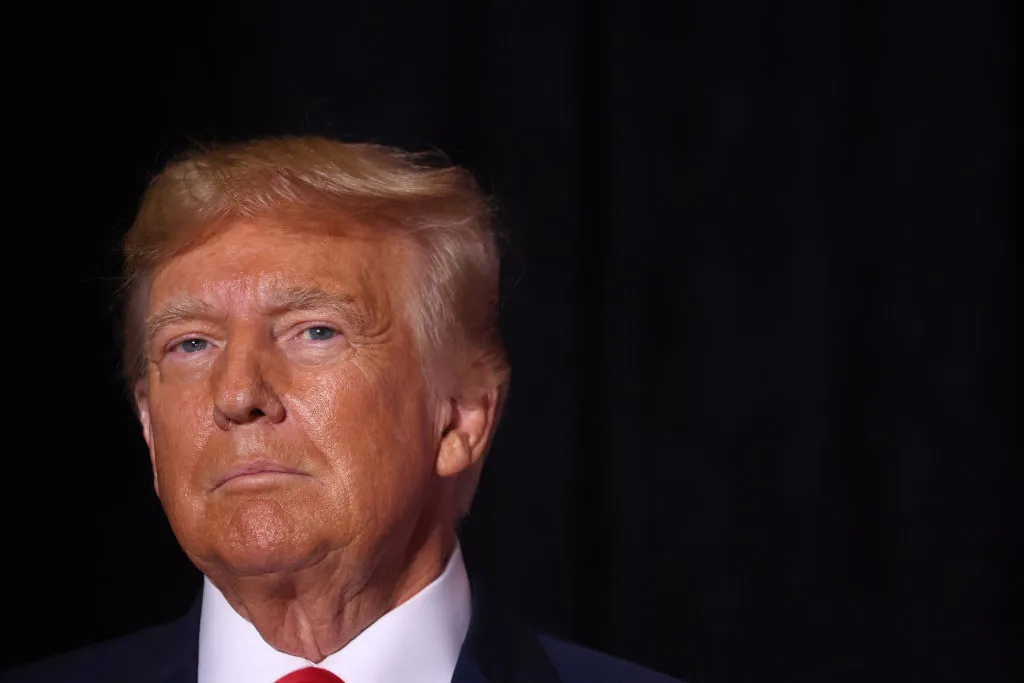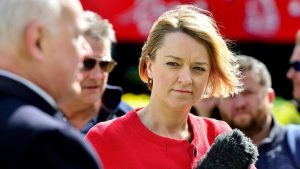
In a Truth Social post published shortly before the DOJ announced the charges, Trump called the indictment “fake” and accused Smith of trying to “interfere” with the 2024 election. “Why didn’t they do this 2.5 years ago?” he wrote. “Why did they wait so long? Because they wanted to put it right in the middle of my campaign.”
The government has summoned Trump to appear in D.C. federal court on Aug. 3, according to the Justice Department.
“The attack on our nation’s Capitol on January 6, 2021 was an unprecedented assault on the seat of American democracy,” Smith said Tuesday. “Our investigation of other individuals continues. In this case, my office will seek a speedy trial so that our evidence can be tested in court and judged by a jury of citizens.”
The indictment accuses Trump of repeatedly lying about election malfeasance even though he knew those claims were false. It alleges that multiple administration officials told him there was no widespread fraud that would have changed the election outcome, including Vice President Mike Pence, senior DOJ officials, Director of National Intelligence John Ratcliffe, and senior White House attorneys.
But that didn’t stop Trump from pressing forward with his attempts to hold onto power. A core component of the charges stems from Trump’s attempts to submit fraudulent slates of electors in key swing states that went for Joe Biden, such as Arizona, Georgia, Michigan, Pennsylvania, and Wisconsin, according to the indictment.
It also details private phone calls in the days before the Jan. 6 attack between Trump and Pence, who took “contemporaneous notes” of the conversations, according to the indictment. In one of them, Trump allegedly told the former Vice President he was “too honest” after Pence said he didn’t have the authority to unilaterally reject the election results. The indictment says Trump attorney John Eastman also pressured Pence to subvert the Electoral College certification. After a senior aide warned that such a maneuver would galvanize riots in the streets, Eastman allegedly argued that “there had previously been points in the nation’s history where violence was necessary to protect the republic.”
Pence responded to the indictment on Tuesday with a statement, saying in part: “On January 6th, Former President Trump demanded that I choose between him and the Constitution. I chose the Constitution and I always will.”
By the time Trump’s efforts to override the election had reached a crescendo on Jan. 6, the indictment alleges, Trump exploited the violence refusing to approve a message directing rioters to leave the building. Yet even after the crowd dispersed hours later, Trump would not relinquish his claims that the election was rigged. “The White House counsel called the defendant to ask him to withdraw any objections and allow the certification,” the indictment says. “The defendant refused.”
The referral came as the Justice Department had been pursuing its own investigation into Jan. 6, which by then was under the purview of Smith, who Attorney General Merrick Garland appointed as special counsel after Trump announced his presidential bid in November.
As a candidate, Trump has consistently cast the many criminal probes against him as the instrument of systemic forces conspiring to bring him down. It has led some to speculate that Trump officially launched his candidacy early—a week after the midterms—to complicate matters for prosecutors who have a longstanding policy of trying to avoid even the appearance of influencing an election. Trump critics also suspect that he wants to delay the trials past the election. That way, if he wins, he could attempt to pardon himself in the federal cases or have his attorney general simply squash the matter entirely.
But U.S. District Judge Aileen Cannon, who is overseeing the classified documents case, has pushed that trial to May 20, 2024. And in New York, the “hush money” case is scheduled to start on March 25, 2024—both in the heat of the primaries.
It’s unclear whether Trump could stand trial for the Jan. 6-related charges before voters head to the polls, but some former federal prosecutors thinkTrump’s delay efforts are likely to work. Years-long delays are common in most white-collar criminal cases, and it will be even harder to expedite the high-stakes and unprecedented prosecutions of a former President who is also the leading candidate for the 2024 Republican nomination.
Even if Trump is convicted by the special counsel, the charges against him won’t disqualify him from the presidency, according to legal experts. Under the Constitution, all natural-born citizens who are at least 35 years old and have been a resident of the U.S. for 14 years can run for president. There is no legal impediment to Trump continuing his presidential campaign while facing criminal charges—even if he were jailed.
For Smith and his prosecutors, Tuesday’s indictment is the beginning of a lengthy legal process. “This is going to be a challenging case,” Roth says. “Even more challenging to present and win than the case in Florida involving the documents. There will be a great deal of evidence and a very complicated story that will need to be told to explain the crimes and to explain the former President’s conduct. It’s much more sprawling than the charges that were brought in Florida that are, in a sense, narrow in their scope.”



